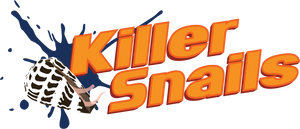2019 Ed Games Expo
On Monday, Jan 7, and Tuesday, January 8, Killer Snails joined more than 100 other educational game developers in Washington DC at the Kennedy Center for the 6th Annual Ed Games Expo- two days of demonstrating our products and learning from each other!
Thanks to Ed Metz of the Institute of Educational Sciences the conference was the largest and for Killer Snails, the best one yet!
Monday began with over 1200 students from local Washington DC schools visiting the game developers’ booths. As you can see, it looked the students had a great time playing our BioDive as well as all the games around us including Fablevision, Schell Games, Andamio Games, The Beamer, PocketLab, iCivics, Early Adopter and Tablecraft!

After the four hours of demonstrating with students, the hall closed for a brief break before Office Hours started with a number of stakeholders in the educational games community, from organizations like Digital Promise, Games & Learning, and West Ed, to funders from Chan Zuckerberg Initiative, Rethink Impact and GSV- AcceleraTE. We were thrilled to meet with so many brilliant members of the educational game ecosystem.
Tuesday kicked off with a panel facilitated by Susanna Pollack of Games For Change on research on educational games from researchers Jan Plass of New York University, Mark Lee of Carnegie Mellon University and Meredith Thomson of Massachusetts Institute of Technology and Edward Palacios from the Department of Education’s Continuing Technology Education.
The discussion centered on how VR can be a tool for education; it won’t be a panacea. A couple highlights from that discussion:
-
As Meredith Thomson said, “To create VR for learning we need to think about rules, roles and resources. We need to figure out rules for how people work in the new environment. We need to think about roles. We need to think about resources for what these people are using in their roles.”
-
Still much research and work to be done on determining the best ways to use VR building upon the characteristics of experience: construction of identity, sense of presence and co-presence which leads to spatial knowledge representation, engagement, collaborative learning, ability to undertake experiential learning tasks, and contextualization of learning.
The next panel included heads of game studios Jessica Ochoa Hendrix of Killer Snails, David Langendoen of Electric Fun Stuff and Tyler Gates of Brightline Interactive. We talked a bit about the direction we were each developing- Killer Snails and Electric Fun Stuff both develop for mobile VR as our focus is on being in schools. Brightline Interactive works with higher end VR for site specific learning virtual reality.
The next panel centered on partnerships and distribution led by Michelle Miller, President of Games and Learning, who pointed out the “Huge opportunity- 30 Million US teachers and 30 M US families currently use digital learning content. 88% of all schools now connected over high bandwidth.”

She spoke with Jordan Lloyd Bookey of Zoobean, about their product Beanstack which they sell through library systems. Jordan mentioned how important it was to start off working with a consortium of libraries to attain financial stability.Kara Carpenter of Teachley, stated Teachley’s goal of going very deep on a concept which teachers really like. Their sales strategy has evolved to focus upon 5-25 schools districts because they pay more attention to a small, successful pilot. Successful pilot leads to a single school purchase which may lead to a district purchase. Dave McCool, of Muzzy Lane Software, talked about his successful partnership with McGraw Hill. The project came out of a Gates Foundation grant which included passing an accessibility audit and being cross platform.
A couple interesting points from the panel included:
-
Teachley recently completed a small study that looked at games alone versus games + data, classrooms that had access to the data played the game 70% more than the folks that had only games, regardless of whether the teacher actually looked at the data.
-
Zoobeans and Teachley remark about how popular the printable mastery certificates are!
The next panel was equally interesting as it was a panel discussion on Funding/Business Models Moderated by Michelle Dervan of ReThink Education, with Panelists Grant Hosford of CodeSpark, Krista Marks of WootMath, and Devin Young of ClassCraft. Many of the attendees, Killer Snails included, have previously received government grant funding through the Small Business Innovation Research program so hearing of these differing models was inspiring.
Our top two takeaways from that panel were:
-
2016 was the biggest year for deals (1.48 billion in 280 deals and it has dropped to about 1.2 billion in about 240 deals). Funds want to write larger checks for fewer companies. This has translated to a seed round being $2-3 million dollars.
-
Do your research not just on the Venture Capital for (do they invest in your area? What size checks do they write?) but also on the specific person you want to reach as most VCs are prolific writers.
The group also discussed over funding models as Krista mentioned she had sold a previous company to Disney. Finally, the group had a passionate debate about the importance of efficacy studies for investors and buyers with a general agreement that these studies are necessary but not sufficient as VCs are mostly interested in growth and some districts are interested in those studies while others seem less interested.
That led nicely to the final panel of the day which focused on Research and was facilitated by Bart Epstein of the Jefferson Education Exchange with Panelists Jessica Tsang of Chan Zuckerberg Initiative, Daniel Stanhope of LearnPlatform, Hank Fien of University of Oregon; and Michelle Tiu of WestED.

All of these organizations take a slightly different approach to research and dissemination so learning more about each one's strategy was fascinating. This panel discussed the different stages of research, the planning needed to scale what works and bringing on researchers. A couple highlights from that panel:
-
Pay attention to user experience and test your product in widely divergent different implementation environments. Don’t just test with the friendlies and overachievers
-
Bring in researchers early to help your products be more grounded in evidence. Many researchers love being advisors. Check National Education Researcher Database (NERD) to help you find researchers who may have researchers or availability.
After that panel, we returned to the fourth floor of the Kennedy Center to prepare for the public Ed Games Expo from 4pm-8pm. Many people came by that evening including developers, teachers and families.
 This was the third Ed Games Expo Killer Snails has had the privilege of joining and definitely our best one yet! Thank you again for all the hard work from Ed Metz and all the organizers!
This was the third Ed Games Expo Killer Snails has had the privilege of joining and definitely our best one yet! Thank you again for all the hard work from Ed Metz and all the organizers!


